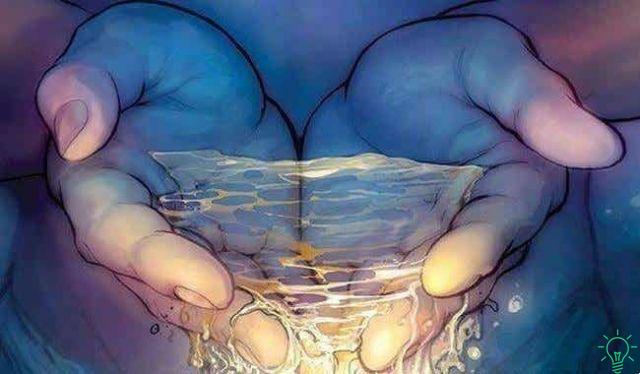
Written and verified by the psychologist GetPersonalGrowth.
Last update: February 18, 2022
Emotions are like notes in the score of our life. Sometimes the music is cheerful, lively and intense, but little by little it envelops us in its sad melody full of hopelessness. It is his notes that nourish us and offer us the energy necessary to transform our reality.
There is an Arabic proverb that says: "Those who do not understand a look will never understand an explanation". A sentence of profound wisdom that makes us understand the nature of emotions as a universal language.
Emotions can be our strength or the darkness that envelops our existence. If we learn to know and manage them, we will become the architects of our reality, of our happiness.
Those of you who are already interested in the topic of emotional intelligence and have already read a lot about it are invited to continue reading anyway: today we will try to look at emotions in a different way, as a powerful weapon, as an energy to know and control to redefine many aspects of ourselves and of our reality.
Emotions create our reality
According to a study by social psychologist Barbara Fredrickson, published in the journal “Review of General Psychology” (2008), positive emotions, in addition to satisfying us on a timely basis, act as mechanisms of learning. In other words, reference is made to the following relationship: the more satisfying emotions we accumulate, the better our personal resources will be to deal with times of crisis.
As human beings, we all want to be happy. For this purpose, as it is good to remember, sometimes it is enough to reach inner peace, to be free from any past resentment, hatred or frustration. A free mind is a heart that can afford to smile.
If emotions are able to transform our reality, this is not due to simple magic. It is good to always remember that emotions are not just an inner condition, but a combination of various and powerful elements:
- Cognition, that is, our way of processing what happens around us, what we see, hear and experience. All this acquires a profound meaning in us.
- Our feelings and our way of reacting. To understand this passage, we propose a very simple example: you are in love with someone and you do not have the courage to tell them, until it is too late and that person disappears from your life; you have missed the opportunity, at least, to try.
You will certainly be filled with sadness, as you have not been able to react in time, as long as that feeling of yours was intense and positive. There was no prompt reaction and your existence is now marked by an eternal conditional. "And if I had ...".
With my eyes I always try to see the beautiful things around me, and if I don't see any, I make sure they happen. Because smiling costs nothing, I don't try to trust and hope in things, thinking that I deserve to be happy and that no bad moment can ruin my day.
Sometimes our brain is associated with a condition of biochemical chaos in which we are under the influence of neurotransmitters. It is these, in fact, that stimulate our emotions.
The main neurotransmitters related to emotions
The main neurotransmitters responsible for our emotions are:
- Dopamine: is linked to the experiences of pleasure and reward in our learning processes. In other words, when we do a positive thing, we segregate dopamine, which makes us feel fulfilled and enveloped in a pleasant sensation.
- Serotonin, for its part, is the neurotransmitter associated with memory and learning. Well, it is important to know that an imbalance in serotonin levels can lead to increased anger, anxiety, depression and a sense of panic.
- Norepinephrine, in the right amount, keeps stress and anxiety levels low.
Emotional energy to transform your life
Dr. Fredrickson, the aforementioned expert in the field of emotional psychology, explains the existence of a curious paradox related to positive emotions: their intensity is much shorter than negative emotions. In simple terms, the feeling of intense happiness lasts less than a state of sadness.
Considering this premise, the act of "accumulating" a long series of positive experiences is essential, so as to effectively counteract the phases of negativity. In the following paragraph we will deepen this phenomenon.
The theory of openness and construction of positive emotions
Just as mentioned in the introduction, a human being capable of accumulating numerous positive emotions acquires the basic effective tools to face difficult moments.
- This phenomenon is defined by experts as "theory of openness and construction", based on the need to expand one's positive experiences in order to acquire new skills.
- If on the one hand negative emotions tend to have elusion, denial or immobility as a response, on the other hand positive ones “erect” us, favoring the relationship between “thought and action”.
If you follow the principle exemplified here, we should orient our days in search of positive emotions. Apparently simple aspects of life, such as learning new things, relating to others, walking, touching, feeling, dancing, walking or reading are actually small "bricks of positivity" aimed at building continuous change. Dare to try.
Sometimes emotions are like drifting stars, swinging out of control. Only after having known them and having known themselves, will they appear as luminous stars capable of guiding our path.


























